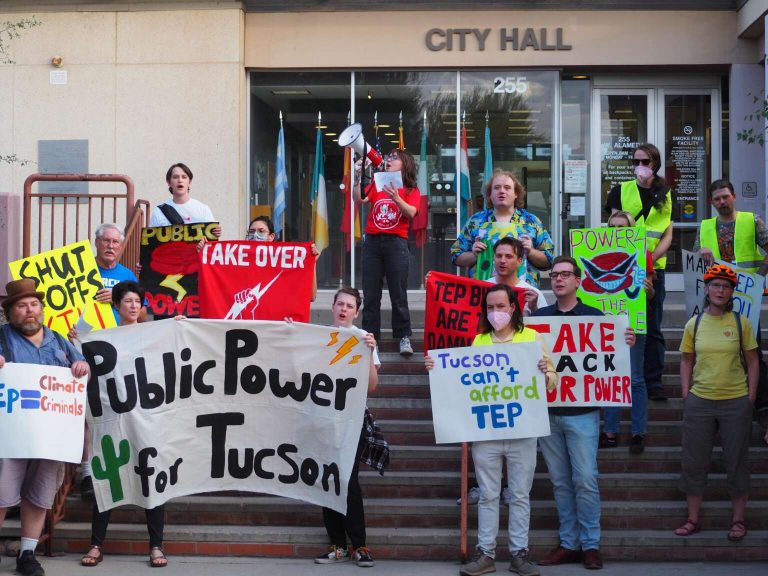As Electricity Bills Rise, Activists Demand Public Control Of Utilities
Electricity bills for millions of utility customers are skyrocketing across the U.S. while the number of households facing extreme utility debt is mounting. Energy costs are being turbocharged by the AI data center boom, which is prolonging the burning of fossil fuels in the face of intensifying climate chaos. Overseeing all this is a powerful regime of investor-owned utilities that dominate our energy system. These for-profit corporations own and control the basic infrastructure we all depend on.
Their executives and shareholders profit by raising electric rates or skimping on maintenance. And now, private equity firms are gunning for utilities.















